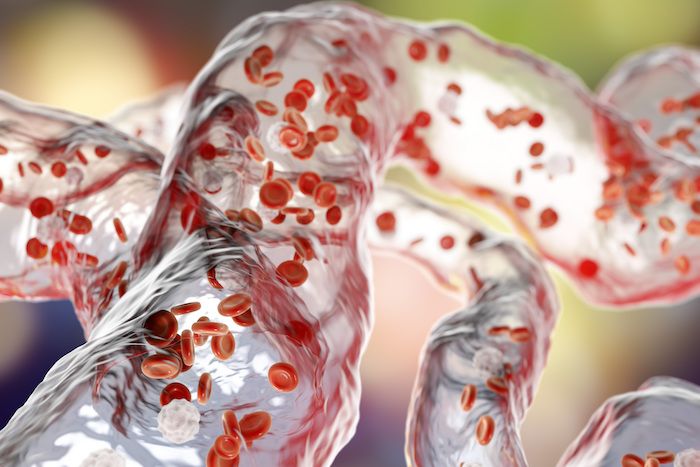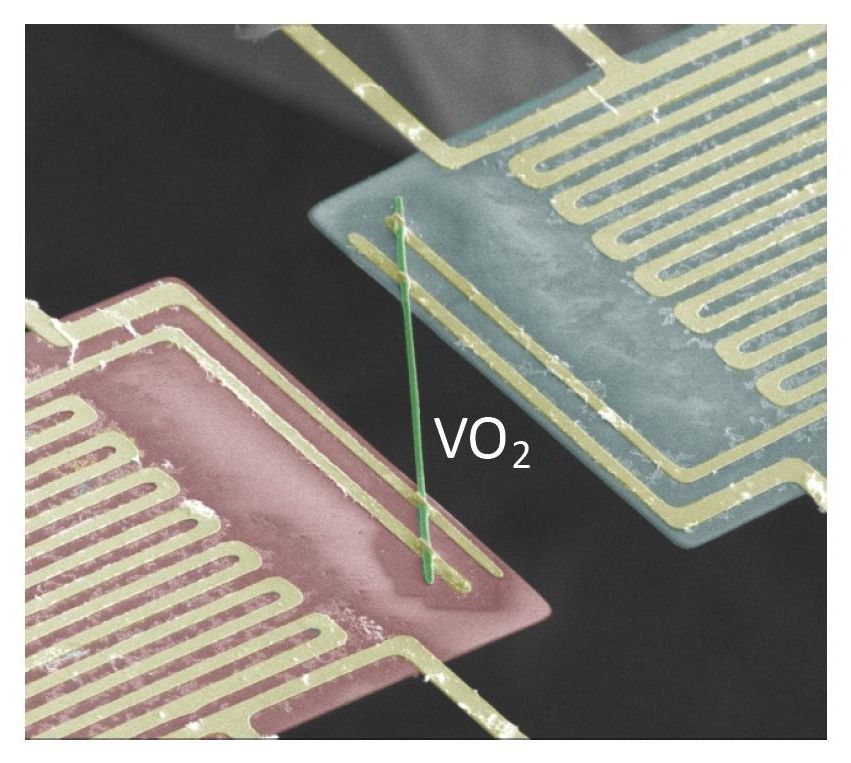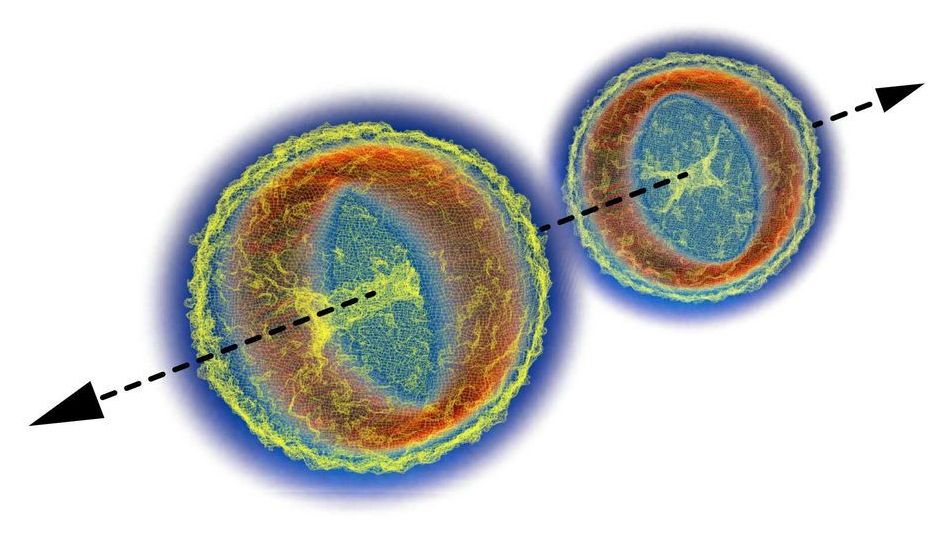Page 7827
May 23, 2019
Huge Amount of Water Ice Is Spotted on Mars (It Could Be Long-Lost Polar Ice Caps)
Posted by Quinn Sena in category: space
Researchers believe they’ve spotted the remains of ancient Martian ice caps mingled with layers of sand, all a mile below the Red Planet’s modern north pole.
May 23, 2019
Amazon is reportedly working on an Alexa-powered wearable that reads human emotions
Posted by Quinn Sena in categories: health, wearables
Amazon is reportedly developing a voice-activated wearable device that can recognize human emotions.
If successful, the health product could help the company improve its targeted advertisements and make better product recommendations, reports Bloomberg. The unnamed device could also advise humans on how to better interact with others.
A source showed Bloomberg internal Amazon documents that revealed a few details about the futuristic health and wellness product.
May 23, 2019
The Government Is Serious About Creating Mind-Controlled Weapons
Posted by Quinn Sena in categories: bioengineering, biotech/medical, drones, genetics, government, nanotechnology, robotics/AI
DARPA, the Department of Defense’s research arm, is paying scientists to invent ways to instantly read soldiers’ minds using tools like genetic engineering of the human brain, nanotechnology and infrared beams. The end goal? Thought-controlled weapons, like swarms of drones that someone sends to the skies with a single thought or the ability to beam images from one brain to another.
This week, DARPA (Defense Advanced Research Projects Agency) announced that six teams will receive funding under the Next-Generation Nonsurgical Neurotechnology (N3) program. Participants are tasked with developing technology that will provide a two-way channel for rapid and seamless communication between the human brain and machines without requiring surgery.
“Imagine someone who’s operating a drone or someone who might be analyzing a lot of data,” said Jacob Robinson, an assistant professor of bioengineering at Rice University, who is leading one of the teams. [DARPA’s 10 Coolest Projects: From Humanoid Robots to Flying Cars].
Continue reading “The Government Is Serious About Creating Mind-Controlled Weapons” »
May 23, 2019
For this metal, electricity flows, but not the heat
Posted by Quinn Sena in category: materials
There’s a known rule-breaker among materials, and a new discovery by an international team of scientists adds more evidence to back up the metal’s nonconformist reputation. According to a new study led by scientists at the Department of Energy’s Lawrence Berkeley National Laboratory (Berkeley Lab) and at the University of California, Berkeley, electrons in vanadium dioxide can conduct electricity without conducting heat.
The findings, to be published in the Jan. 27 issue of the journal Science, could lead to a wide range of applications, such as thermoelectric systems that convert waste heat from engines and appliances into electricity.
For most metals, the relationship between electrical and thermal conductivity is governed by the Wiedemann-Franz Law. Simply put, the law states that good conductors of electricity are also good conductors of heat. That is not the case for metallic vanadium dioxide, a material already noted for its unusual ability to switch from an insulator to a metal when it reaches a balmy 67 degrees Celsius, or 152 degrees Fahrenheit.
Continue reading “For this metal, electricity flows, but not the heat” »
May 23, 2019
Scientists solve a century-old mystery to treat asthma and airway inflammation
Posted by Quinn Sena in category: biotech/medical
Belgian research groups from the VIB, Ghent University, Ghent University Hospital, and the biotech company Argenx have solved a century-long puzzle about the presence of protein crystals in asthma. Normally, proteins do not crystallize in the body, but there are some instances when this process does occur. Charcot-Leyden crystals are made from the protein galectin-10 and were discovered in the airways of asthmatics as early as 1853.
However, the crystals have been largely ignored by scientists, and their actual link to disease remained unknown. The Belgian research groups have now established that the crystals are highly abundant in airway mucus, stimulate the immune system and promote the inflammation and altered mucus production that is often seen in the airways of asthmatics. Together, the academic and company scientists also developed antibodies that can dissolve these crystals to reduce key asthma features. Such antibodies could be first-in-class therapeutics that reverse protein crystals and treat asthma and other chronic inflammatory diseases of the airways. The study is published in the leading journal Science.
May 23, 2019
New collider concept would take quantum theories to an extreme
Posted by Quinn Sena in categories: particle physics, quantum physics
A new idea for smashing beams of elementary particles into one another could reveal how light and matter interact under extreme conditions that may exist on the surfaces of exotic astrophysical objects, in powerful cosmic light bursts and star explosions, in next-generation particle colliders and in hot, dense fusion plasma.
Most such interactions in nature are very successfully described by a theory known as quantum electrodynamics (QED). However, the current form of the theory doesn’t help predict phenomena in extremely large electromagnetic fields. In a recent paper in Physical Review Letters, researchers from the Department of Energy’s SLAC National Accelerator Laboratory and their colleagues have suggested a new particle collider concept that would allow us to study these extreme effects.
Extreme fields sap energy from colliding particle beams—an unwanted loss that is typically mitigated by bundling particles into relatively long, flat bunches and keeping the electromagnetic field strength in check. Instead, the new study suggests making particle bunches so short that they wouldn’t have enough time to lose energy. Such a collider would provide an opportunity to study intriguing effects associated with extreme fields, including the collision of photons emerging from the particle beams.
Continue reading “New collider concept would take quantum theories to an extreme” »
May 23, 2019
Natural “Fasting” Molecule Exerts Anti-Aging Effects to Protect Vascular System
Posted by Paul Battista in categories: biotech/medical, life extension, neuroscience
 A molecule produced by the body during fasting or calorie restriction has anti-aging effects on the vascular system, which could reduce the occurrence and severity of human diseases related to blood vessels, such as cardiovascular disease, according to a study led by Georgia State University.
A molecule produced by the body during fasting or calorie restriction has anti-aging effects on the vascular system, which could reduce the occurrence and severity of human diseases related to blood vessels, such as cardiovascular disease, according to a study led by Georgia State University.
“As people become older, they are more susceptible to disease, like cancer, cardiovascular disease and Alzheimer’s disease,” said Dr. Ming-Hui Zou, senior author of the study. “Age is the most important so-called risk factor for human disease. How to actually delay aging is a major pathway to reducing the incidence and severity of human disease.
May 23, 2019
Aspirin green light for brain bleed stroke patients, study finds
Posted by Paul Battista in categories: biotech/medical, neuroscience
People who suffer a stroke caused by bleeding in the brain—known as brain haemorrhage—can take common medicines without raising their risk of another stroke, a major clinical trial has found.
Researchers say the findings are reassuring for the thousands of people who take the medicines to reduce their risk of heart attack and another common type of stroke caused by blood clots in the brain.
These everyday treatments—known as antiplatelet medicines—work by slowing or stopping blood from clotting. They are often prescribed to older people because they can lower risk of heart attack and stroke caused by a blood clot.
Continue reading “Aspirin green light for brain bleed stroke patients, study finds” »

















